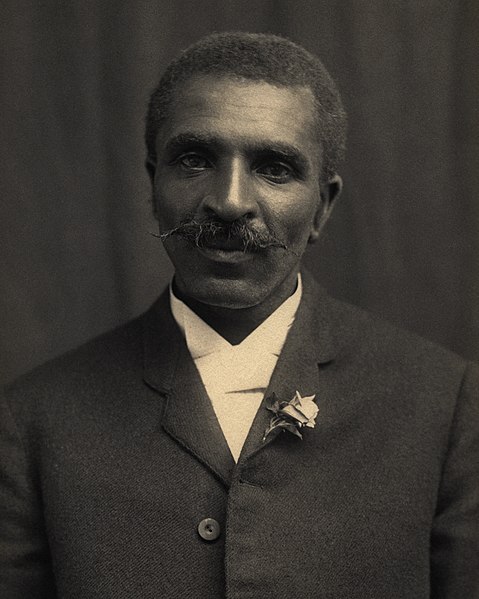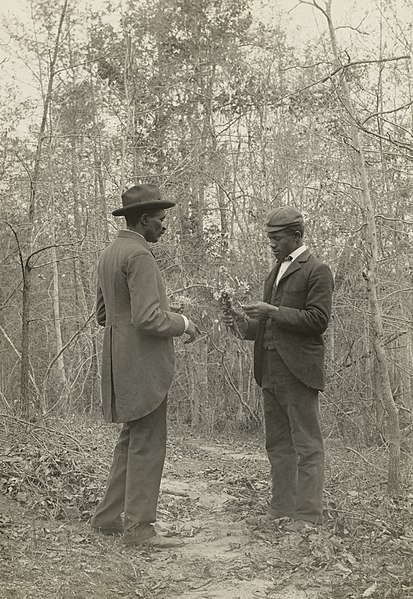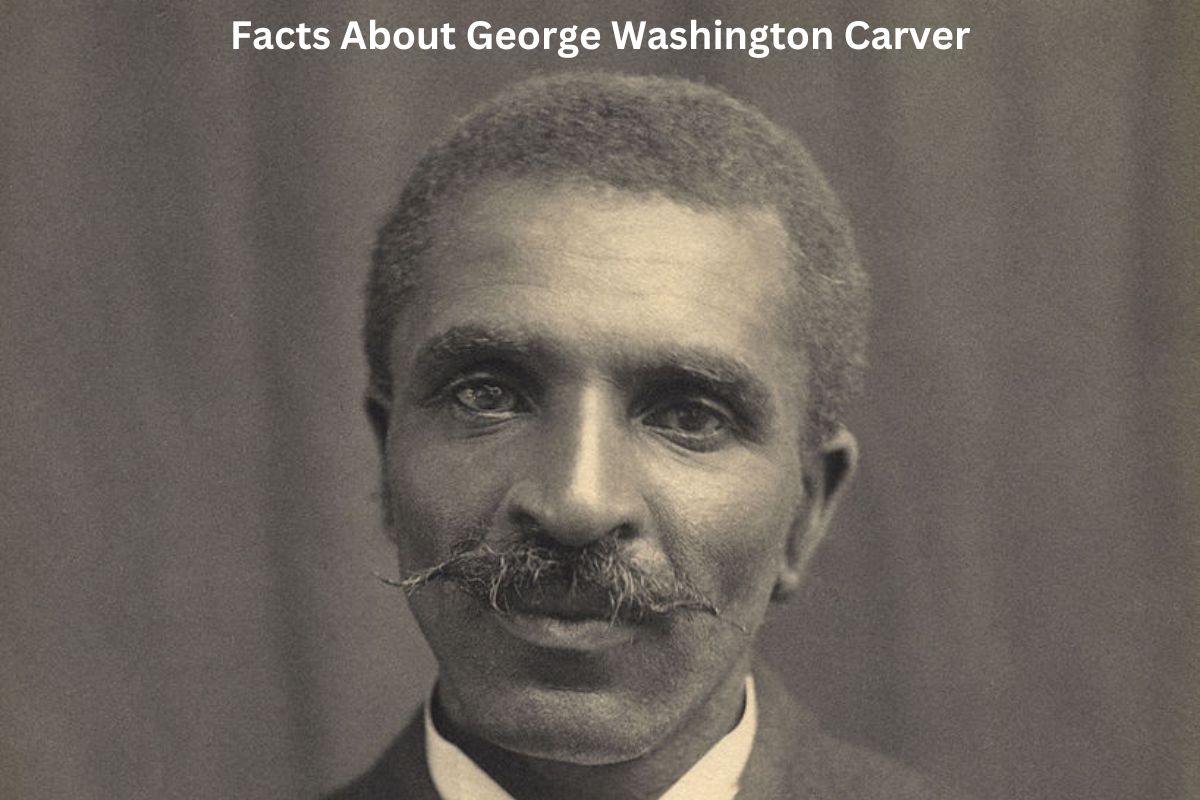George Washington Carver was a remarkable African American scientist, educator, and inventor who made significant contributions in the field of agriculture.
Born around 1864 in Diamond, Missouri, during the era of slavery, Carver overcame numerous obstacles to pursue an education.
He became the first African American student at Iowa State College of Agriculture and Mechanical Arts, where he conducted groundbreaking research on peanuts and developed over 300 products from this versatile crop.
Carver’s work on crop rotation and soil conservation also revolutionized agricultural practices and helped improve the economic prospects of farmers, particularly in the South.
Beyond his scientific achievements, Carver was a staunch advocate for racial equality and education, dedicating his life to uplifting his community. His legacy continues to inspire and empower individuals to this day.
George Washington Carver Facts
1. Born around 1864 in Diamond, Missouri
George Washington Carver was born around 1864 in Diamond, Missouri, during the era of slavery in the United States.
As a slave, the exact date of his birth was not accurately recorded. Despite the challenging circumstances of his early life, Carver went on to achieve remarkable accomplishments.

2. First African American student at Iowa State College of Agriculture and Mechanical Arts
Carver’s pursuit of education was met with numerous obstacles. He became the first African American student to attend Iowa State College of Agriculture and Mechanical Arts (now Iowa State University).
Also Read: George Washington Carver Accomplishments
His admission to the college was a significant milestone, given the prevailing racial prejudices of the time. Carver’s dedication and passion for learning propelled him through his studies.
3. Known for groundbreaking research on peanuts and developed over 300 peanut-based products
One of Carver’s most notable contributions was his groundbreaking research on peanuts. He conducted extensive experiments and developed over 300 different products derived from peanuts.
These products included peanut butter, peanut oil, peanut milk, peanut flour, and even ink and soap made from peanuts. Carver’s innovations revolutionized the peanut industry and had a profound impact on agricultural practices and food production in the United States.
Also Read: Timeline of George Washington Carver
His work provided farmers with alternative crop options and helped diversify agricultural production. Additionally, his research created new economic opportunities for rural communities, particularly in the South, where peanuts became a valuable cash crop.
Carver’s scientific contributions and entrepreneurial spirit established him as a prominent figure in agricultural science.
4. Pioneered crop rotation and soil conservation techniques
Carver’s work on crop rotation and soil conservation was instrumental in addressing the issue of soil depletion. In the South, many farmers heavily relied on cotton, leading to a significant decline in soil fertility.
Carver promoted the practice of crop rotation, which involved alternating the planting of cash crops like cotton with nitrogen-fixing crops such as peanuts and sweet potatoes. This method helped restore soil nutrients and prevented soil erosion.
Carver’s research and advocacy for sustainable agricultural practices had a lasting impact on the region, improving farming techniques and promoting long-term soil health.
5. Faced discrimination and worked under segregated conditions
Despite his remarkable achievements, Carver faced significant challenges and discrimination throughout his career. As an African American scientist, he often had to work under segregated conditions, with limited access to resources and opportunities.
Despite these obstacles, Carver persevered and continued his groundbreaking research. His determination and resilience in the face of racial prejudice are a testament to his character and commitment to his work.

6. Advocate for racial equality and education
Carver was not only a scientist but also a tireless advocate for racial equality and education. He believed that education was the key to overcoming racial inequality and worked diligently to empower African American farmers and communities.
Carver emphasized the importance of education in agricultural practices, encouraging farmers to adopt modern techniques and improve their economic prospects.
He also dedicated his time to teaching at Tuskegee Institute (now Tuskegee University) for nearly five decades, where he mentored and inspired generations of students.
Carver’s commitment to education and his efforts to uplift his community made him a revered figure and a role model for many aspiring African American scientists and intellectuals.
7. Donated life savings to establish the George Washington Carver Foundation
In 1940, George Washington Carver donated his life savings to establish the George Washington Carver Foundation.
The foundation aimed to support agricultural research and provide scholarships for African American students pursuing higher education in agriculture and related fields.
Carver’s generosity and vision reflected his commitment to fostering scientific advancement and creating opportunities for future generations.
8. Respected teacher and mentor at Tuskegee Institute
Throughout his tenure at Tuskegee Institute, Carver was not only a respected scientist but also a dedicated teacher and mentor.
He inspired and guided numerous students, many of whom went on to become successful scientists, educators, and agricultural experts in their own right.
Carver’s mentorship played a crucial role in nurturing talent and promoting the advancement of African Americans in the field of agricultural science.
9. Received the Spingarn Medal from the NAACP in 1923
George Washington Carver received several honors and accolades for his groundbreaking work. In 1923, he became the first African American to be awarded the Spingarn Medal by the NAACP (National Association for the Advancement of Colored People).
The medal recognized Carver’s significant contributions to agriculture and his unwavering commitment to racial equality.
Additionally, Carver received honorary degrees from various universities, further highlighting the recognition and respect he garnered for his achievements.
10. Symbol of perseverance and inspiration for overcoming adversity
Carver’s legacy extends far beyond his scientific contributions. He is remembered as an icon of perseverance, innovation, and the potential for greatness in the face of adversity.
His work not only revolutionized agricultural practices but also inspired countless individuals, regardless of their background, to pursue their passions, overcome obstacles, and make a positive impact on society.
Today, Carver’s achievements continue to inspire and empower people, reminding us of the transformative power of education, determination, and scientific inquiry.
